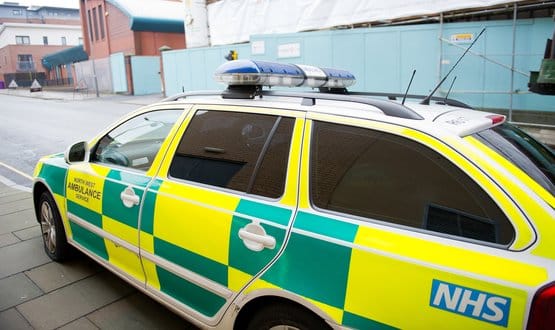Paramedics will soon be able to access the mental health crisis plans of emergency patients while on the move, following the successful first pilot phase of the National Record Locator.
The National Record Locator Service enables paramedics and mental health nurses find out whether the patient they are treating has a mental health crisis plan.
In doing so, medical responders can decide whether the patient should be transported to a more appropriate care setting than A&E, or otherwise direct them to community-based care as indicated in the patient’s crisis plan.
Initial tests of the new National Record Locator service gave ambulance staff in pilot areas the ability to see whether someone they were treating had a mental health crisis plan.
This will now expand, giving paramedics access to the crisis plan itself so that they can make the right clinical decisions on the ground instead of taking the patient to Accident and Emergency units or referring back to other health professionals who have access to the necessary information.
The first full record retrieval will take place in November, with an additional three mental health trusts joining the nine trusts already involved with the first phase.
Mike Walker, head of the integrating care programme at NHS Digital said the trial had been “a fabulous success.”
He added: “Now we’ve proven that the technology works, it’s time to open it up, to new areas of specialism, new settings: putting the clinical information itself into the hands of those that need it.
“Our ambulance staff do a fantastic job, handling real-life emergencies every single day. Having access to the right information at the right time will mean fewer wasted trips to overstretched A&Es and better care for patients.”
Stuart Crichton, CCIO at London Ambulance Service said: “Our drive to get the user experience right is being brought to life by the team at NHS Digital. Our clinicians don’t have to worry about usernames and passwords to access patient information, the security is all taken care of in the background enabling us to focus on patient care.
“I love it, our staff love it and this technology will change the face of how we access data across the NHS.”
The next phase of the pilot will see digital child health records shared by child health organisations and health visiting services, as care is transferred from one service to another.
‘Pointers’ will be added for digital maternity services in successful pilot areas from 2020, flagging where expectant mothers are receiving care elsewhere.
Mental health nurses will also be able to access records when working in the community with the police, to promote joined-up service provision and appropriate care.
Rob Shaw, Deputy Chief Executive of NHS Digital said: “This is another step on our journey to full integration of digital records, ensuring that front line staff in all settings have access to the records they need to continue delivering outstanding care.
“Services like the National Record Locator, NHS Identity and the Summary Care Record application have the potential to revolutionise the way that NHS staff work, supporting them to make more effective and timely clinical decisions, working alongside all the great, local projects also tackling the challenges around system interoperability.”
Read more:

